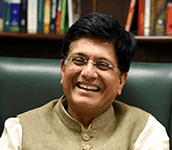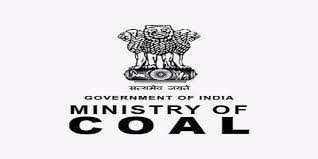21 DEC ,Delhi: Ministry of Coal has taken various steps to mitigate adverse impacts of coal mining and has aligned itself to the sustainable environment friendly practices for the areas affected by various coal mining activities. One such aspect is dealing with the mine closure cases of abandoned/closed/legacy mines or mines to be closed in near future based on the principle of Just Transition (JT) for All.
With passage of time, old mines will shut down due to exhaustion of reserves, viability issues, safety reasons etc. which will require proper closure addressing the social, physical & environmental aspects of closure to ensure sustenance of livelihood of people and communities dependent on the mines. Due to the closing of mines, a vast amount of land will become available, which has a huge potential for regional transformation and economic diversification. Therefore, Indian Coal Sector has initiated efforts for developing a comprehensive mine closure framework on JT principles. Just Transition can be explained as a Transition which is just, fair and equitable for all stakeholders where livelihoods of each impacted persons are secured, and no one is left behind.
Global expert agencies such as World Bank and GIZ (a German Development Agency) have approached Ministry of Coal to offer their expertise for developing a Coal Mine Closure Framework based on JT Principles. These proposals aim to create a mine closure framework on a pilot basis for mines in Jharkhand/ Chattisgarh that have previously been closed, abandoned, or are about to close due to resource exhaustion and develop few closed mines as pilot projects. The envisaged Coal Mine Closure Framework will provide support to livelihood of impacted local people and community on Just Transition Principles along with repurposing of the reclaimed land & infrastructure assets for economic diversification of coal regions. The framework will be backed by a strong policy support, strong institutional arrangement, sustainable funding mechanism and tool for stakeholder consultations.
Parliamentary Consultative Committee attached to Ministry of Coal also discussed the emerging issue of Coal Mine Closure – Achieving Just Transition for All on 09.11.2022 in Indore. During the discussion, the Committee Members appreciated the efforts being undertaken by the Ministry of Coal and Coal/Lignite PSUs towards coal mine closure. The members acknowledged the initiatives taken by the coal sector to further develop coal mine closure framework and expressed hope that by adopting best global practices and application of principle of Just Transition to closure of mines will be a big step forward for social equity and justice.
In the process of economic transition of the coal region, the reclaimed land and mine asset will be repurposed by engaging public / private firms to create avenues for employment and revenue generation such as solar parks, eco-parks, fish-farming, warehouse, resorts, museum, picnic spot, golf course, pumped hydro using OC/UG voids and other energy related infrastructure.
Coal/Lignite PSUs have developed 8 eco-parks in last 3 years on reclaimed land by undertaking sustainable mine closure practices. These mining sites are now stable, environmentally sustainable and present a very beautiful site aesthetically. Some of these sites have already been integrated with local tourism circuit and Coal/Lignite PSUs are consulting the respective State tourism departments for integration of other parks. These sites are expected to generate revenue for self-sustenance and create employment potential for local people. Development of eco-parks/tourism sites to promote mine tourism on reclaimed land is one of the key thrust areas of Coal/Lignite PSUs. In coming 4-5 years, it has been envisaged to create more than 30 new eco-parks/tourism sites and take up expansion of 9 existing eco-parks.
With the lessons learnt in the process, the closure framework will get refined gradually, help in capacity building and creation of a robust structure for managing the mine closures that may happen in long term.






















